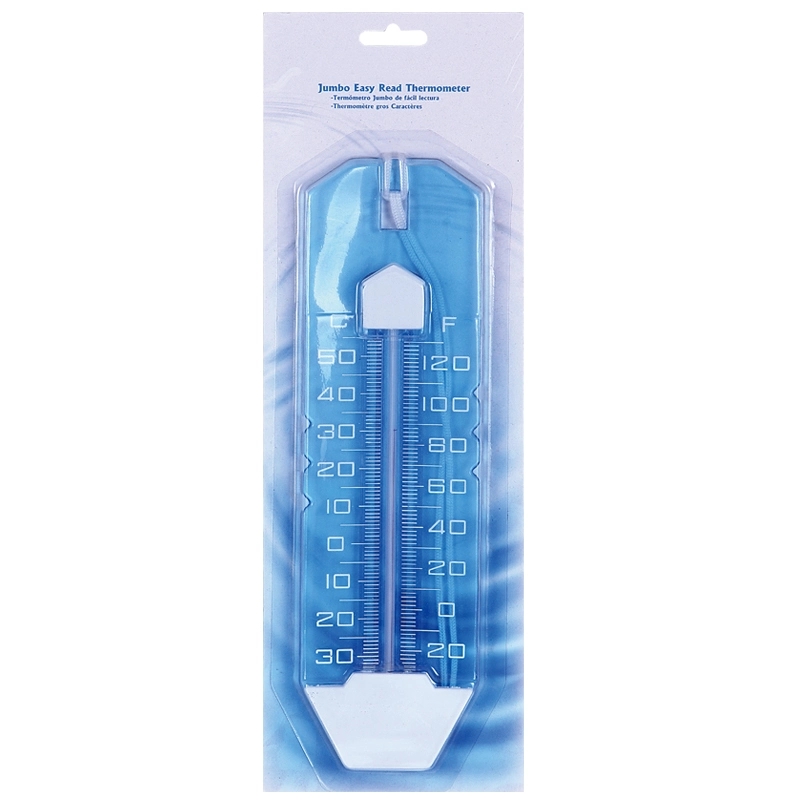Characteristics of Pool Thermometer
2023-10-16
A pool thermometer is a simple yet essential tool for monitoring the water temperature of a swimming pool. It helps ensure the water is comfortable for swimmers and aids in maintaining optimal pool conditions. Here are the key characteristics of a pool thermometer:
1. Temperature Measurement: The primary function of a pool thermometer is to accurately measure and display the water temperature of the pool.
2. Accuracy: A reliable pool thermometer should provide accurate temperature readings, allowing you to make informed decisions about pool maintenance and water conditions.
3. Temperature Range: Pool thermometers have a specified temperature range in which they can accurately measure. Ensure the thermometer's range covers the expected temperature fluctuations in your pool.
4. Display: Pool thermometers have a clear and easy-to-read display that shows the water temperature. Some models offer both Fahrenheit and Celsius readings.
5. Type of Thermometer:
- Floating Thermometers: These are designed to float on the water's surface, providing real-time temperature readings. They are versatile and can be easily moved around the pool.
- Submersible Thermometers: These can be submerged underwater for accurate readings at various depths. They often have a cord or string attached to them for easy retrieval.
6. Material: Pool thermometers are typically made from durable materials that can withstand exposure to pool chemicals and the elements. Common materials include plastic, stainless steel, and rubber.
7. Durability: Look for a pool thermometer that is durable and resistant to fading, cracking, and other forms of wear caused by sun exposure and pool chemicals.
8. Buoyancy: Floating thermometers should have proper buoyancy to ensure they remain on the water's surface and don't sink.
9. Tethering: Some floating thermometers come with a tether or cord that can be anchored to the pool deck or ladder to prevent them from drifting away.
10. Calibration: Pool thermometers should be properly calibrated to provide accurate readings. Some models may have calibration features to ensure accuracy over time.
11. Battery or Power: Most traditional pool thermometers are not powered by batteries, relying on manual measurement and observation. However, digital or remote pool thermometers may require batteries for their electronic components.
12. Visibility: The thermometer's display should be visible from a distance or while standing at the pool's edge for easy monitoring.
13. User-Friendly: The thermometer should be easy to use and require minimal setup or configuration.
14. Compatibility: Consider the type of pool you have (in-ground or above-ground) and choose a thermometer that is compatible with your pool's design and dimensions.
15. Budget: Pool thermometers come in a range of prices, so consider your budget while choosing a thermometer that meets your needs and preferences.
A pool thermometer is a small yet crucial tool that contributes to a comfortable and safe swimming experience. Regular monitoring of the water temperature can help you adjust pool maintenance activities, such as adjusting chemical levels, heating, and cooling, to maintain optimal water conditions.



